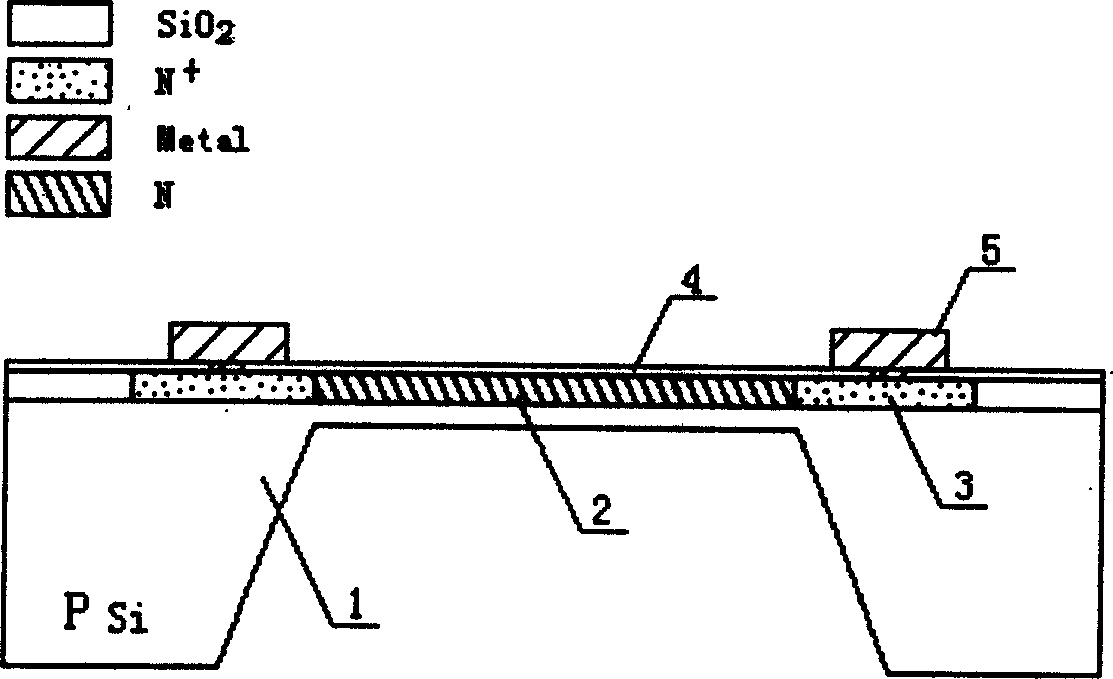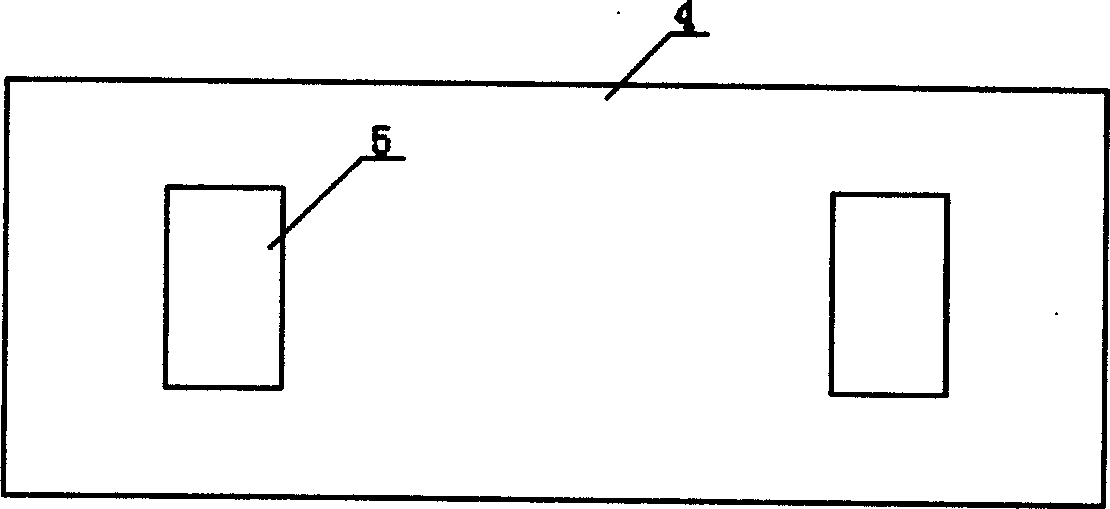Anti-radiation electric field microsensor
A micro-sensor, anti-radiation technology, applied in electrostatic field measurement and other directions, can solve the problems of poor reliability, low resolution, difficult packaging of movable structures, etc., to achieve the effect of improving reliability
- Summary
- Abstract
- Description
- Claims
- Application Information
AI Technical Summary
Problems solved by technology
Method used
Image
Examples
Embodiment Construction
[0011] A radiation-resistant electric field microsensor for collecting electric field signals, comprising a p-type substrate 1, a hole 6 is arranged at the bottom of the p-type substrate 1, and a hole 6 (about 0.1 μm) is arranged on the upper surface of the p-type substrate 1 n-type silicon 2, two heavily doped n-type contact regions 3 are implanted on the n-type silicon 2, an n-type channel 7 is arranged between the two n-type contact regions 3 and the two n-type contact regions 3 Connected by n-type channel 7, on the n-type contact region 3 and n-type channel 7 (about 50nm) SiO 2 Layer 4 is provided with a metal lead 5 on the heavily doped n-type contact region 3 .
[0012] After the two n-type heavily doped contact regions of the present invention are applied with a voltage, when there is an external electric field incident on the n-type channel of the electric field microsensor, the carriers (electrons) in the channel will increase accordingly, thereby making the channel ...
PUM
 Login to View More
Login to View More Abstract
Description
Claims
Application Information
 Login to View More
Login to View More - Generate Ideas
- Intellectual Property
- Life Sciences
- Materials
- Tech Scout
- Unparalleled Data Quality
- Higher Quality Content
- 60% Fewer Hallucinations
Browse by: Latest US Patents, China's latest patents, Technical Efficacy Thesaurus, Application Domain, Technology Topic, Popular Technical Reports.
© 2025 PatSnap. All rights reserved.Legal|Privacy policy|Modern Slavery Act Transparency Statement|Sitemap|About US| Contact US: help@patsnap.com


